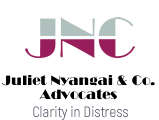• Wetlands play role of protecting our shores from wave action, reduction in the impact of floods, absorption of pollutants and improvement of the water quality.
• Thousands of communities depend on the wetland for fishing and farming and other socio-economic activities.
2nd February is internationally recognized as World Wetlands Day. This date marks the adoption of the Convention on Wetlands.
For Nature lovers, Conservationists and Environmentalists, the said highlights an important day whereas, on the 2nd of February 1971 in the Iranian City of Ramsar on the shores of the Caspian Sea, an international treaty for the conservation and sustainable use of wetlands was signed and to which Kenya is a party.
Wetlands are defined under the Convention as “Areas of marsh, fen, peat land or water, whether natural or artificial, permanent or temporary, with water that is static or flowing, fresh or brackish or salty, including areas of marine water the depth of which at low tide does not exceed six metres.”
The theme for World Wetlands Day, 2020 being Wetlands and Biodiversity; was an opportunity to emphasize on the importance of wetland biodiversity conservation.
Wetlands are a critical component in our environment. Wetlands play role of protecting our shores from wave action, reduction in the impact of floods, absorption of pollutants and improvement of the water quality.
Wetlands also do provide a habitat for animals and plants and many further contain a wide diversity of life thus supporting plants and animals that cannot thrive in any other place.
Thousands of communities depend on the wetland for fishing and farming and other socio-economic activities.
Specific Examples of Ramsar Designated Wetlands In Kenya
In commemoration of World Wetland Day this year, Dr Keriako Tobiko, the Cabinet Secretary for Environment planted a bamboo tree at Enapuiyapui swamp within Eastern Mau Forest and gave a directive for the swamp to be gazetted as a wetland.
There are designated Ramsar wetland areas in Kenya due to the significant habitats therein.
The Tana River Delta Ramsar Site located in the Coast is an important birding zone with diverse habitats supporting varieties of marine life and endemic animal species such as the Tana River red colobus.
Other recognized Ramsar Wetland areas in the country include: Lake Naivasha, Lake Elementatita, Lake Bogoria and Lake Baringo.
Major Causes of Threats and Effects of Wetlands To Biodiversity, Kenya Chapter
Wetland conservation and management faces a myriad of threats. Despite the many ecological and socio-economic functions, wetlands are often regarded as wastelands and have continually been degraded by human activities such as pollution, overexploitation, and conversion to agricultural use, settlement and industrial development. Additionally, the lack of awareness and appreciation of the value of wetlands has massively contributed to the loss, degradation and mismanagement of the same.
Deforestation and catchment destruction in wetlands has impacted directly to habitat degradation and also the alteration of hydrological regime in regions such as Mau Catchment areas and the Upper Lake Victoria Basin. Livestock grazing, human settlement and encroachment has also precipitated habitat loss and loss of living animals such as migratory birds, fish, turtles and other organisms. A lucid example of negative impact of wetland degradation is human- wildlife conflicts resulting to displacement of wildlife such as the hippopotamus, destruction of papyrus swamps and mangrove forests thus an adverse effect on biodiversity.
Way Forward
There is need for heightened awareness of the essence of wetlands. Conservation of wetlands boosts biodiversity and aids to maintain existence of living things in nature and also saves valuable resources for the future generations. Human beings and human activities are the biggest threat to wetlands conservation globally and thus public awareness of these retrogressive activities is but critical.
As conservation is a way of life, there ought to be apt deliberate involvement of local communities in matters wetland conservation together with extensive public education and sensitization on the importance of wetlands and guidance on sustainable utilization of the same. Indeed, as Nobel Peace Prize Laureate and Environmentalist Wangari Muta Maathai stated, “You cannot protect the environment unless you empower the people, you inform them, and help them understand that these resources are their own, that they must protect them.”
The above article appeared on the Star Newspaper on the 17th of February, 2020
The author is an Advocate of the High Court, Principal Partner at Juliet Nyangai & Company Advocates and a nature lover. She is passionate about Animal Welfare and Conservation.
Ms J.O Nyangái can be reached on: Twitter: @nyangaij Email: nyangaij@gmail.com



Leave a Reply
You must be logged in to post a comment.